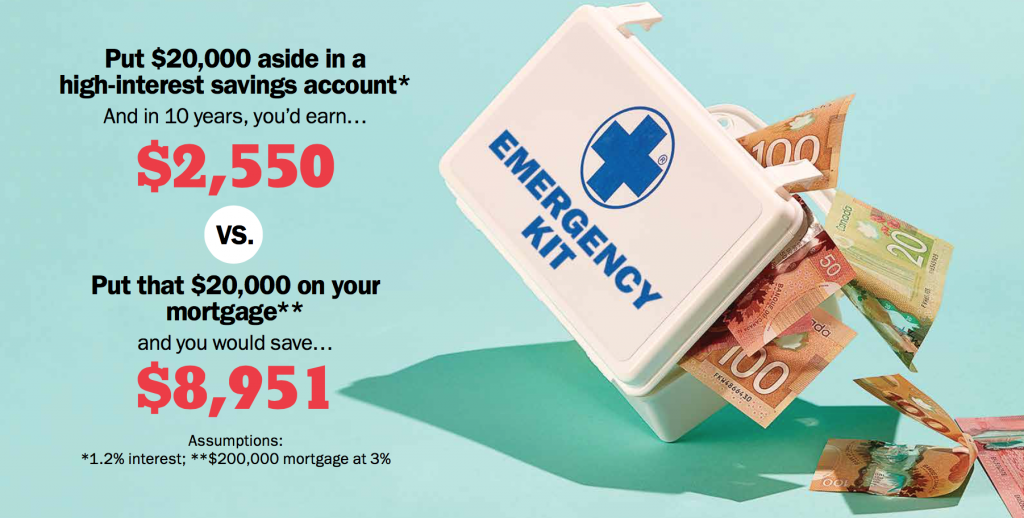Cash out your emergency fund
Your cash isn't earning as much as your debt is costing you
Advertisement
Your cash isn't earning as much as your debt is costing you
 Over the course of 10 years, you’d lose out on more than $6,400 in interest savings if you go the cash route. But even if you don’t have debt, notes Heath, why hold cash when you can get your money working for you by investing it? Provided you don’t fall into the trap of constantly raiding your line of credit instead of using it as an occasional emergency fund, that’s always the wiser choice.
Over the course of 10 years, you’d lose out on more than $6,400 in interest savings if you go the cash route. But even if you don’t have debt, notes Heath, why hold cash when you can get your money working for you by investing it? Provided you don’t fall into the trap of constantly raiding your line of credit instead of using it as an occasional emergency fund, that’s always the wiser choice.
 Want even more tips to shape up your finances? Join the Money Fit Club to curb spending, boost your earnings, lower your taxes and more!
Learn to tone your money muscles all year long with our interactive calendar and sign up for our weekly newsletter for advice straight to your inbox.
Want even more tips to shape up your finances? Join the Money Fit Club to curb spending, boost your earnings, lower your taxes and more!
Learn to tone your money muscles all year long with our interactive calendar and sign up for our weekly newsletter for advice straight to your inbox.
Share this article Share on Facebook Share on Twitter Share on Linkedin Share on Reddit Share on Email